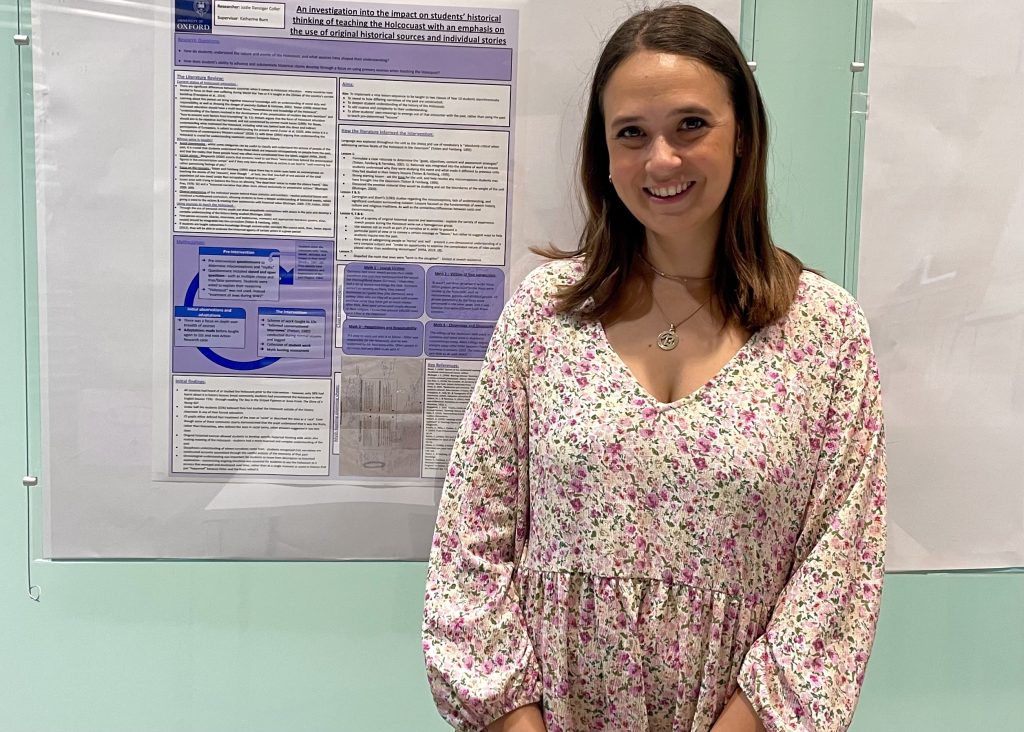Jodie Coller is a part-time student on the MSc Learning and Teaching course, alongside her teaching job commitments. Prior to studying at the department, she completed a BA History at University of Birmingham and PGCE at UCL Institute of Education (IOE), (through Teach First). She was a Head of Department for five years in an inner-London state school, before moving schools and taking on a pastoral role (Head of Year 10).
What degree did you apply for and why was it important to you to study this?
After graduating, I got into teaching through Teach First which meant I was working full time whilst completing my PGCE. Consequently, I always knew that I wanted to further my pedagogical studies and return to do a masters. The MSc Learning and Teaching provided the space and time to engage both with and in research, which I could easily apply to my classroom setting.
What do you hope to go on to do once you’ve completed your postgraduate degree? What do you hope to achieve?
As well as improving my teaching practice, next year I will be taking on a whole school role as ITT Lead. The masters has given me the confidence to lead colleagues to engage with pedagogical research. In the near future, I am hoping to take on a Senior Leadership role, with a focus on Teaching and Learning.
What do you most value about the teaching at the department?
I have really appreciated being supported and supervised by some of the most highly reputable academics in history education. My supervisor has not only supported my research during the masters, but has also encouraged and inspired me to think beyond the programme and publish my research in academic journals.
Why do you think it’s important to study education?
Lifelong learning is something I try to instil into all my students. For me, studying education allowed me to continue to develop my own practice as a teacher through reflecting on my pedagogy and engaging with research.
What’s the community (student & staff) like at the department?
Although I completed the masters during Covid, we were still able to connect with other students online through Teams meetings. The annual Poster Conference also gave us the opportunity to meet in person and discuss each other’s research and final thesis work. Hearing the vast range of research other students were undertaking was incredibly interesting and inspiring. When Covid allows it, we have met up for meals, both in Oxford and London.
What’s your favourite thing about studying at the department?
The nature of the course is highly practical, which means that you are constantly undertaking small tasks in your own classroom and action research. You can really see first hand how literature informs your practice.

Lifelong learning is something I try to instil into all my students. For me, studying education allowed me to continue to develop my own practice as a teacher through reflecting on my pedagogy and engaging with research.





